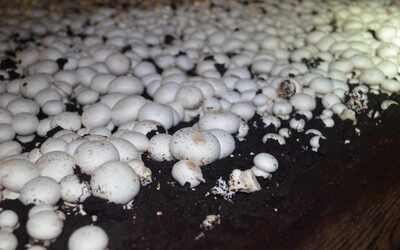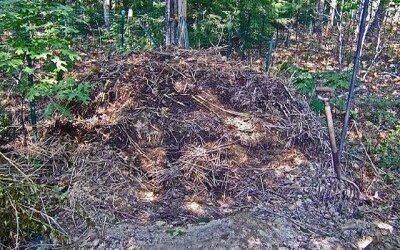Low Cost Organic Agriculture (LCOA) Tips
Increase Production and Save Money on…
Low Cost Organic Agriculture (LCOA) practices focus on optimum utilization of naturally occurring plant nutrients of the soil by plant with the help of microorganisms and earthworms.
Contact Us
Contact@lcoatips.com
(+91) 76783-22176
Monday – Friday : 8 am –5 pm
About Low Cost Agriculture (LCOA)
Farming is the biggest source of employment in rural areas. Low Cost Organic Agriculture (LCOA) practices thus ensures profitable and environment friendly agriculture and simultaneously manages waste and creates sustainable livelihood.
It relies on ecologically balanced agricultural principles like crop rotation, green manure, organic waste, biological pest control, mineral and rock additives. Organic farming make use of pesticides and fertilizers if they are considered natural and avoids the use of various petrochemical fertilizers and pesticides.
Organic Fertilizer
Bio-Fertilizer
Increase Production
Frequently Asked Questions
1.What is Low Cost Organic Agriculture (LCOA)?
Low Cost Organic Agriculture (LCOA) practices focus on optimum utilization of naturally occurring plant nutrients of the soil by plant with the help of microorganisms and earthworms. LCOA practices facilitate creating of microenvironment in the topsoil and make it conducive for smooth functioning of microorganisms and earthworms. This way plant’s requirement of external inputs decreases drastically. Further whatever external inputs are administered most of them are homemade and are made from household materials. It helps in keeping the farm input expenses in check.
2.Why Low Cost Organic Agriculture (LCOA)?
a) The agriculture sector in developing countries of Asia and Africa is marred by expensive farm inputs at the very foundation level, it leads to high cost of farming, debt ridden farmers, highly increased farmer risk as the actual realization of return on farmer’s investment depends on tow major factors i.e. weather and market prices and most of the times the farmer is at the loosing end. LCOA inputs significantly decreases the farmer’s risk and increase agricultural profit margins.
b) In present scenario as agriculture is becoming less lucrative the village youth is migrating towards the cities for greener pastures. This migration not only poses threat of extinction on local culture but at the same time put unhealthy pressure on city’s resources.
c) The ill effects of excessive use of chemical fertilizers and pesticides towards the environment and human beings can’t be ignored. Some of them are ground water contamination, marine dead zones, soil acidification, depletion of topsoil microorganisms, ozone layer depletion and threat of cancer like diseases to humans.
3. What are the benefits of Low Cost Organic Agriculture (LCOA)?
For Farmer
- Healthy and disease resistant crops resulting in healthier improved yields.
- Low cost of agricultural inputs resulting in a significant decrease in farmers’ expense and thereby reducing his risk.
- Organic produce fetches better prices.
- Lucrative agriculture attracts credit and investment into the sector making it more profitable for everyone.
- Household increase in income leads to local area development and also helps in retaining local talent by checking youth migration.
For Agro Industries
1. Consistent availability of good quality raw material helps in boosting the local level processing industries.
2. It helps in generation of employment at the local level.
3. Institutional investors and big industry players are attracted to the benefits from the point of view that sustainable practices with respect to the environment and community, are core to investment philosophy.
4. Local farmers and processing industries become an integral part of the global organic revolution and are able to reap the benefits.
For Consumer
1. Consumer gets access to better quality organic food at affordable prices.
2. The per capita food consumption will increase resulting in easing the pressure on global food security.
Latest from the Blog
मशरूम खाद के साथ जैविक बागवानी
मशरूम की खाद बगीचे की मिट्टी को बेहतरीन बनाती है। मशरूम खाद के साथ जैविक बागवानी कई तरीकों से पूरी की जा सकती है, और यह बगीचे को कई तरह से लाभ प्रदान करती है। (1) मशरूम खाद क्या है? मशरूम खाद एक प्रकार का धीमी गति से छोड़ने वाला, जैविक पादप उर्वरक है। इस खाद को मशरूम...
खाद के लाभकारी बैक्टीरिया
बैक्टीरिया पृथ्वी पर हर रहने वाले स्थान में पाए जाते हैं और खाद बनाने के संबंध में यह आवश्यक भूमिका निभाते हैं। वास्तव में कहें तो, बैक्टीरिया के बिना कोई खाद नहीं हो सकती या उस मामले के लिए जब पृथ्वी ग्रह पर जीवन है। उद्यान खाद में पाए जाने वाले लाभकारी बैक्टीरिया...
कॉफी पाउडर का खाद में प्रयोग
कॉफी पाउडर का खाद में प्रयोग-आप रोजाना अपने लिए एक कप कॉफी बनाते हों और आपने देखा होगा कि स्थानीय कॉफी हाउस ने इस्तेमाल की हुई कॉफी के बोरों को बाहर रखना शुरू कर दिया है, तो आप इसको देखकर कॉफी पाउडर के साथ खाद बनाने के बारे में सोच रहे होंगे। कि क्या उर्वरक के रूप...






